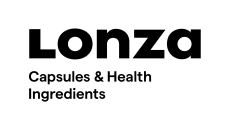Journal hails DSHEA as ‘milestone’ in US public health policy
The issue assembles the papers presented at the 2010 DSHEA Symposium, Chicago, IL, and starts with an editorial from Guido Pauli from the UIC/NIH Center for Botanical Dietary Supplements Research at the University of Illinois at Chicago.
“The event provided a timely and comprehensive account of multidisciplinary research on botanical dietary supplements, and was widely perceived as both an educational overview and inspiring communication,” explained Dr Pauli.
In addition to hailing the contribution of DSHEA to the development of US public health policy, Dr Pauli highlights the key outcomes of the Act, including the definition of a dietary supplement as well as removing of dietary supplements from the category of food additives, and permitting the use of structure/function claims.
DSHEA also led to the inauguration of the NIH Office of Dietary Supplements (ODS), and the 1998 congressional establishment of the National Center for Alternative and Complimentary Medicine (NCCAM) from the former Office of Alternative Medicine (OAM), said Dr Pauli.
Looking towards the other articles published in this issue of Fitoterapia, Dr Pauli writes: “While the individual contributions of the authors add color to the numerous shades of gray of botanical research topics, these printed proceedings will enable perpetuation of the thoughts communicated during the symposium — just as J.W. von Goethe has put it: ‘Only things in black-on-white can safely be taken home’.”
The consumer's search for wellness
In her summary of DSHEA, Annette Dickinson from Dickinson Consulting in Minnesota stated: “The Dietary Supplement Health and Education Act of 1994 succeeded in its primary goals of ensuring the continued availability of a wide variety of dietary supplements and of providing consumers with more information about the intended uses of such products, by establishing a legal definition of the category and by creating a new class of label claims regarding effects on the structure and function of the body.
“DSHEA changed the face of the dietary supplement category and reinforced the role of dietary supplements in the consumer's search for wellness,” she added.
Paul Coates from the ODS and Catherine Meyers from the NCCAM provide a review of NIH investment in research on botanicals.
Investment for botanicals from both the ODS and NCCAM focus on three main areas, note Coates and Meyers, including the NIH Botanical Research Centers Program (BRCP), the NCCAM Product Integrity Process, and the ODS Analytical Methods and Reference Materials Program.
Drug or supplement?
The final paper from the Symposium is authored by Shaw Chen from the Center for Drug Evaluation and Research (CDER), US Food and Drug Administration (FDA). Chen’s article, entitled “Regulation of research: Is it a drug trial or a supplement trial?” explores the principles used by FDA to determine whether an Investigational New Drug (IND) is required for “clinical studies of surrogate endpoints that do not lead to approvable drug claims”.
References: Fitoterapia
Volume 82, Issue 1: Papers from the DSHEA 2010 Symposium Chicago.
Editorial Pages 1-4
Author: G.F. Pauli
History and overview of DSHEA, Pages 5-10
Author: A. Dickinson
The National Institutes of Health investment in research on botanicals, Pages 11-13
Authors: P.M. Coates, C.M. Meyers
Regulation of research: Is it a drug trial or a supplement trial?, Pages 14-16
Author: S.T. Chen














